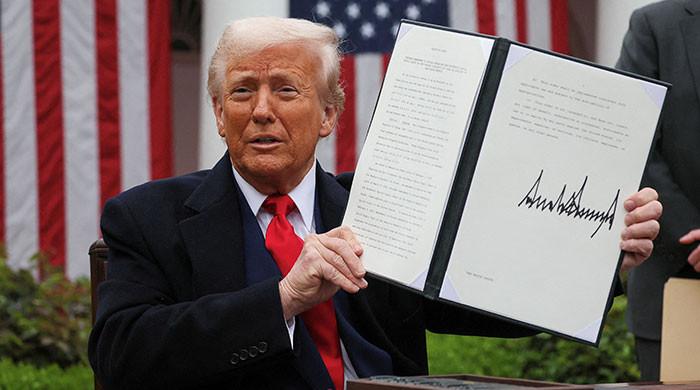Washington: American business leaders have expressed concern about the latest tariff plan of President Donald Trump, warning that new radical duties on imports could increase costs, interrupt supply chains and harm US companies and consumers.
Standing at the White House grass, Trump presented a base rate of 10 percent against almost all US commercial partners in the world from April 5, and an additional recharge rate of April 9 for other countries that currently impose rates barriers and not tariff against US companies.
Commercial groups reacted with consternation to the measures, which would see most of the goods imported from China, for example, facing an additional rate for a total of 34 percent in the upper part of the existing taxes.
“Applying new tariffs at this scale will create a change and interruption that restaurant operators will have to navigate to keep their restaurants open,” said the National Restaurant Association in a statement.
“Bets for manufacturers could not be higher,” said Jay Timmons, president of the National Manufacturers Association. “Many manufacturers in the United States already operate with thin margins.”
“The high costs of the new tariffs threaten the investment, jobs, supply chains and, in turn, the capacity of the United States to overcome other nations and lead as the preeminent manufacturing superpower,” he added.
Together with China, the European Union, India and several other US commercial partners will also face new tariffs of at least 20 percent from April 9.
“These general tariffs are an increase in taxes that will increase the prices of US consumers and damage the economy,” said policy director of the United States Chamber of Commerce, Neil Bradley, in a statement before tariffs were presented.
“We urge those responsible for formulating policies to focus efforts on accelerating the agenda in favor of the growth of extending our current fiscal policy, recalling regulations and unleashing all the potential of American energy,” he added.
In a recent analysis, the Yale University Budget Laboratory estimated that a 20 percent rate on the import board could cost the United States average home at least $ 3,400, a painful cost of life adjustment for most Americans.
“The global and reciprocal tariffs of President Trump are mass taxes on Americans who will boost inflation, will kill jobs in Main Street and can cause a recession for the economy of the United States,” said the executive president of the Consumer Technology Association, Gary Shapiro, in a statement.
“These tariffs will increase consumer prices and force our commercial partners to retaliate,” he said.
Despite the generalized conviction, some lobbying groups were more positive about the announcement.
“Today’s commercial action prioritizes national manufacturers and workers in the United States,” said Scott Paul, president of the Alliance for American Manufacture.
“These working men and women have seen an unfair trade to cut the ground under their feet for decades,” he continued.
“They deserve a fighting opportunity,” he said, describing Trump’s announcement “a necessary step in the right direction.”




